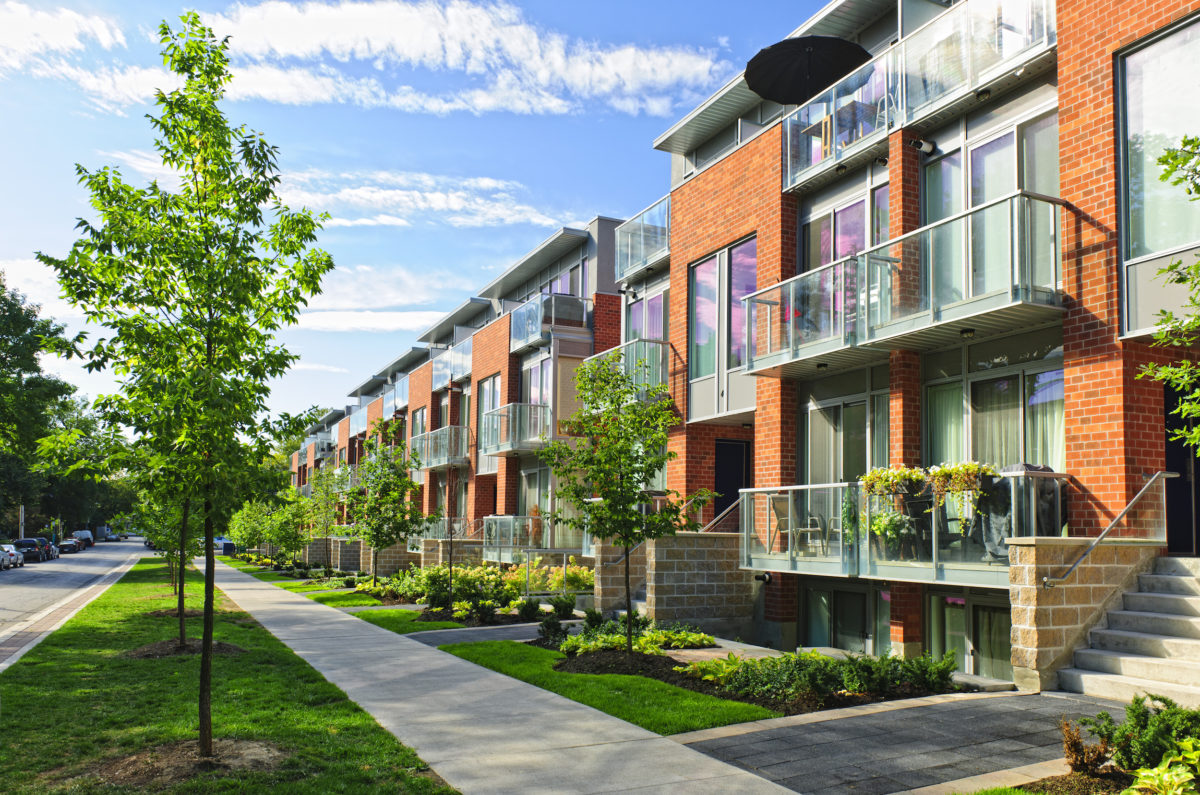Zoning and ROI

IN LAYMAN’S TERMS (A NON-ARCHITECT’S POINT OF VIEW)
Something I read recently made me have an epiphany that, when I said it out loud to the architect in my life, he gave me that look. You know the one where you realize your personal thought is not only not original, but is so old that it’s probably not your thought at all.
That thought? Eliminating R1 zoning might be a fiscally responsible thing to do. More taxes reaped from fewer infrastructure expenses, because you can have more properties (and people) on the existing systems.
I’ll tell you how I got to this: the real estate section of the Globe and Mail. This section tends to focus on Toronto and Vancouver. I don’t really care about the location or the look of the house because I’ll never actually get to see it. What I can relate to is the price of the house versus the taxes paid. It is eye-opening that a house selling at three times the assessment value of mine pays the same taxes that I do.
It made me stop and think. If we slowly encourage people to add homes to existing serviced lots, we would be increasing tax revenue without having to increase the infrastructure spend.
I believe in taxation to pay for social goods. I also believe that government needs to maximize the return on my investment in a balanced way. I live in neighbourhood with several rental-geared-to-income streets. While the residents don’t pay property taxes, they bring children outside to play which means vigilant parents keeping the whole neighbourhood just a bit safer.
The rent-geared-to-income properties are blocks of townhouses. They maximize the shelter provided and give most people a bit of green yard. This seems like a great social investment. R1 zoning is the opposite.
Zoning an area to allow only single-family residences to be built, limits the ability to shelter more people in the same spot, in the end, the city spends the most money servicing the fewest number of people. If we were to eliminate R1 zoning, this could be the first step to maximizing the benefits on the investment we have already made in infrastructure.
I understand that this is a simplistic uninformed opinion on a complex topic. Maybe I should read more. So far the arguments I’ve seen for keeping R1 zoning are not convincing. What it seems to say is that the ideal form of shelter is a single-family detached house on a tree-lined street where we all drive to work. With fear of dating myself, I believe I saw that on The Truman Show.
I would love it if the thousands of dollars I have paid in property taxes over the years would go further – compound the interest by serving more people. I don’t see that happening if we continue to protect the idea that everyone’s ultimate goal is to live in a reality that only ever worked in fiction.